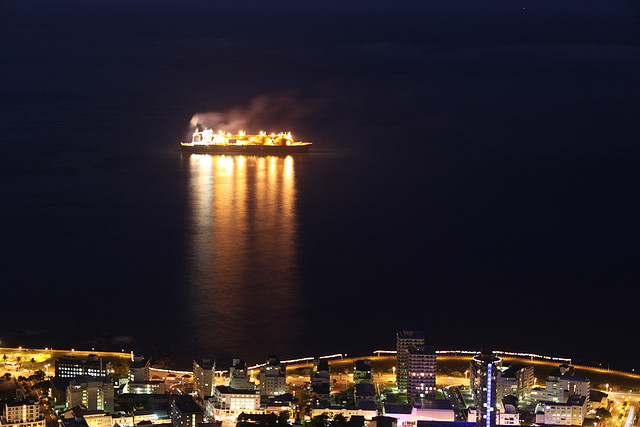by EMIRA WOODS, JAMES REDMAN, AND ELIZABETH BAST
 A liquefied natural gas carrier near Sea Point, South Africa. PHOTO/Derek Keats/Flickr
A liquefied natural gas carrier near Sea Point, South Africa. PHOTO/Derek Keats/Flickr
As children throughout the United States head back to school, it’s a good time to remember that schoolchildren throughout Africa often attend schools with no electricity. In areas that do have the utility, frequent power outages are a constant reminder of the need for dependable access to electricity.
In June, U.S. policymakers announced two initiatives aimed at increasing electricity production in Africa. President Obama launched Power Africa, an initiative that makes a $7-billion U.S. commitment to the energy sector in six African countries. And Representatives Ed Royce (R-CA) and Eliot Engel (D-NY) introduced the Electrify Africa Act in the House, which sets a goal of providing access to electricity for at least 50 million people in sub-Saharan Africa by 2020. Both initiatives place increasing investment by U.S. companies in Africa at their center.
Africa is home to almost 600 million people without electricity, all of whom struggle to meet their basic needs as a result. Access to power translates into refrigerating vaccines, keeping food from spoiling, studying after dark—the kinds of activities that can dramatically improve basic health, education, and economic opportunity.
While rhetoric around the two U.S. initiatives is about reducing poverty and improving Africans’ quality of life, the approaches being outlined seem likely to lead to large, climate-polluting, centralized power projects—not the decentralized, renewable energy systems that are the most efficient and cleanest means of reaching Africa’s poorest families.
Decentralized, renewable energy sources are best for the rural poor.
The International Energy Agency (IEA) says that universal energy access can be achieved by 2030 with significantly stepped-up investment. In sub-Saharan Africa, it would require an extra $19 billion a year, and money pledged by the U.S. government could be a strong down payment.
Foreign Policy in Focus for more
